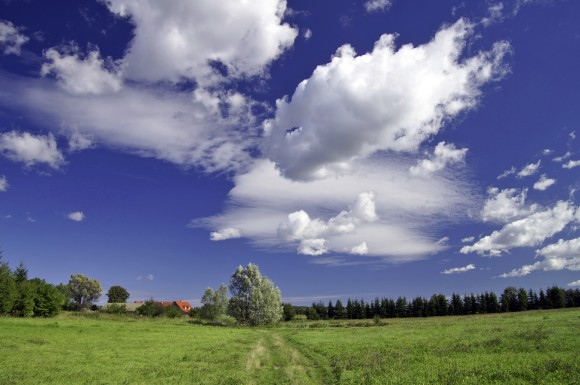
How is YOUR Air Quality?
by: Washington Department of Ecology Posted on: October 21, 2010
By: Kendra Robinson-Harding, Ecology Air Quality Education and Outreach Specialist
Air is a difficult topic. Of all of the different departments within the Department of Ecology, air is the least tangible and most often overlooked element. We can all understand the need for clean rivers and streams, the need to keep litter off the ground and the need to recycle more. But how often do YOU think about air?
As the Air Quality outreach coordinator for Ecology’s Eastern Office, I spend a lot of time talking to students in schools. The biggest challenge I have is getting students to begin to understand what air is and what it means to them.
“Okay, I have a riddle for you,” I tell the students. “You can’t see me or taste me. What am I?” I have stumped a few classrooms, but usually teachers have introduced me, and the more alert students know what department I’m from. “AIR!” they yell.
“That’s right!” I say, preparing them for the more difficult question. “Now…why is clean air so important?”
Usually students stare at me, dumbfounded. A few hands will go up, but then hesitate. “Air gets dirty?” someone will say, with confusion in their voice.
Yes. Air, consisting primarily of oxygen and nitrogen, is floating all around us, along with other stuff…but where does that other stuff come from and how does it impact us?
We tend to take air for granted. It is all around us, all the time. Unlike water, food and shelter, which we have to make an effort to acquire, air enters and is expelled from our lungs automatically. There is no need to think about it, it just is.
“Too many times, people just forget about air,” states Karen Wood, Regional Director for the Eastern office of the Air Quality Program (AQP). “People think that what they do in their back yard or out at their rural farm won’t affect anyone else. The truth is, we all share the air.”
We all share the air. And this common air shed is constantly at risk. On a global scale, pollution travels all over the world. Increased manufacturing in China and coal burning power plants in the Midwest negatively impacts our air. More cars are on the road today than at any other time in human history.
Locally, we are lucky to live in a region powered primarily by hydroelectric dams. But Washingtonians still know how to make air pollution, and it’s not just the big cities over the mountains that are suffering. Ecology estimates, conservatively, that approximately 1,100 people die each year in Washington due to PM2.5, or small particle pollution. Estimates show that the direct and indirect costs of health concerns caused by air pollution, such as heart attacks, heart disease, bronchitis, lung disease, pneumonia and asthma, cost Washington $190 million each year.
Since the early 1990s, programs for reducing emissions from motor vehicles, issuing permits for businesses and industries, reducing outdoor burning emissions, and monitoring air quality to ensure the availability of accurate data on pollution levels around the state have helped improve air quality significantly. Ecology is working collaboratively with federal, state, and local agencies, citizens, and industry partners to provide quality service and products.
But it is not enough. Ecology alone won’t be able to keep the air clean. We all breathe the same air, and we all impact air quality every single day.
Every time you get into your car, you are putting pollution into the air. In fact, driving a motor vehicle is one of the most polluting things the average citizen does, and vehicles are responsible for more than half of Washington’s air pollution. Studies show a direct link between many respiratory diseases and the pollutants found in vehicle exhaust.
Every time you light a campfire or burn leaves and sticks in your yard, you are releasing hundreds of air pollutants that can cause cancer and other health problems. The tiny particles in wood smoke are especially dangerous to health. Because they are so small, our bodies’ natural defenses cannot filter them out. Instead, we inhale them deep into our lungs, where they become lodged, causing reduced lung function, heart disease, and cancer.
Burning garbage is even worse, releasing harmful toxins into the air and soil.
So how can you help? Simple. Drive less. Buy a fuel-efficient vehicle, or one that runs on biodiesel or electricity. Carpool, take the bus, ride a bike. Don’t burn wood. Use natural gas, propane or electricity instead. Never burn yard trimmings. Instead, chip or compost your yard debris. And never burn garbage.
Why is air so important? Because we cannot live without it. And not only can we not live without air, we cannot live with dirty air.
So look around you. How clean is YOUR air?
For more information http://www.ecy.wa.gov/programs/air/airhome.html
One Response to “How is YOUR Air Quality?”
Articles On Air
Air: Air
- Oct 29 Historical Climate Trends in WA and Future Change
- Aug 5 It’s About More Than Business
- Jun 3 Liquefied Natural Gas Exports? (Part 2)
- May 6 Why Coal?
- Apr 22 Foreign Interests, Local Uranium
- Apr 13 Liquefied Natural Gas Exports? (Part 1)
- Sep 21 Liquified Natural Gas on the Columbia River Reignites Fossil Fuel Battle
- Nov 8 Columbia Gorge Air Quality
- Oct 21 How is YOUR Air Quality?


by: Christopher Youngon: Tuesday 15th of November 2011